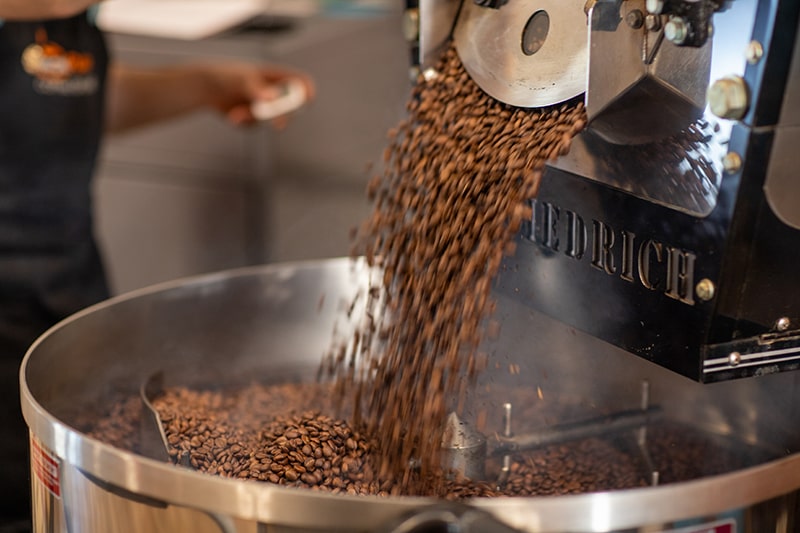Storing coffee beans properly is key to enjoying a fresh cup of coffee. Many coffee enthusiasts often wonder whether freezing beans is an effective method to maintain their freshness. This post will delve into the best practices for storing coffee beans, including the pros and cons of freezing them.
Understanding Coffee Bean Freshness
Coffee beans begin to lose their freshness soon after roasting. Factors contributing to this loss include exposure to air, moisture, light, and heat. To ensure a rich and aromatic brew, it’s important to understand how these factors affect coffee beans and how to properly store them.
The Shelf Life of Coffee Beans
The shelf life of coffee beans, whether whole or ground, is typically around 1-2 weeks after opening the bag. Although they may remain safe to drink after this period, their flavor profile can significantly diminish. Proper storing of coffee beans plays a crucial role in prolonging their freshness and retaining their rich flavors.
Best Practices for Storing Coffee Beans
Keep Them in an Airtight Container
One of the most effective methods for storing coffee beans is using an airtight container. Oxygen exposure is a major culprit in causing beans to go stale. By choosing a container that seals tightly, you can block out air and moisture, prolonging the life of your coffee beans.
Store in a Cool, Dark Place
Light and heat can accelerate the degradation of coffee. It is best to store your container in a cool and dark place, away from sunlight and any heat sources. A pantry or a cupboard is usually ideal.
Avoid the Refrigerator
While it may be tempting to place coffee beans in the refrigerator to keep them fresh, this can actually introduce moisture, which is detrimental to the beans. In addition, the refrigerator can produce odors that the beans might absorb, adversely affecting the flavor.
Freezing Coffee Beans: Pros and Cons
Many coffee enthusiasts have discussed the merits of freezing coffee beans as an option for long-term storage. Here are some of the pros and cons to consider.
Pros of Freezing Coffee Beans
- Extended Freshness: Freezing can help to preserve coffee beans for several months, keeping them fresher for a longer duration than room temperature storage.
- Convenient for Bulk Buyers: If you buy coffee in bulk, freezing can be a practical way to prevent excess exposure to air and light.
- Flavor Retention: Many people find that freezing beans can preserve their flavor profile, especially if the beans are thawed properly before use.
Cons of Freezing Coffee Beans
- Moisture Exposure: The primary risk when freezing coffee beans is that they can become exposed to moisture, especially if they are not stored in a vacuum-sealed bag or an airtight container. This can ruin their flavor and texture.
- Daily Deterioration: Each time the beans are removed from the freezer, condensation can form as they thaw, contributing to moisture issues.
- Changing Aroma: If the coffee absorbs odors from the freezer, it can negatively impact the taste and aroma of the brew.
Thawing Coffee Beans
If you decide to freeze your coffee beans, it’s essential to thaw them properly. The best method is to let them come to room temperature before grinding or brewing. Avoid refreezing beans, as this can result in significant flavor loss.
While freezing coffee beans can be beneficial for extending their freshness, it is not without risks. Storing coffee beans in an airtight container in a cool, dark place is the best method for retaining their quality over time. If you choose to freeze your beans, be mindful of moisture and ensure they are properly sealed.
We recommend our Coffee Canister with De-Gas Valve to store your beans to help ensure that every cup of coffee is as fresh and flavorful as possible. Ultimately, the way you store your coffee will impact your coffee experience, ensuring that you can enjoy the delightful aroma and rich taste that only fresh coffee can provide.


Customer Reviews